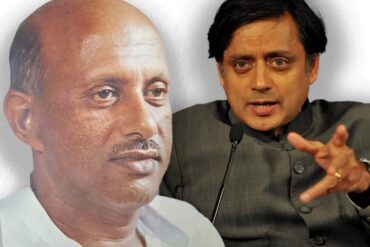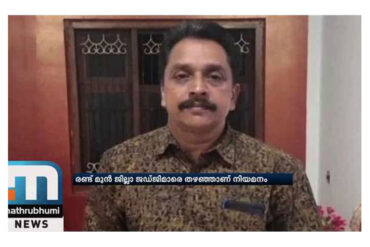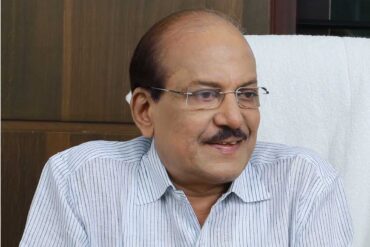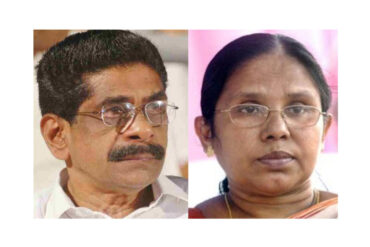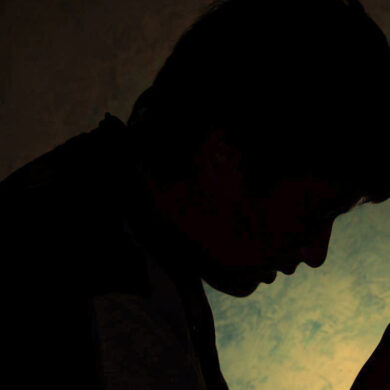It’s seems like the Catholic Church in Kerala will imminently implode—Sister Lucy Kalappurackal’s seminal fight against her Order, Franciscan Clarist Congregation, and a section of the priests taking up cudgels against Major Archbishop George Alencherry—throw up fault lines that can seriously disrupt and redraw the contours of the Catholic faith, as it is traditionally understood and practiced.
In a world that has seen celebrated icons fall off their pedestals in the wake of the Me-Too campaign, the Church cannot be immune to the winds of change that are blowing. By hoisting the flag of revolt, Sister Lucy may have set the cat among the pigeons and initiated something that bring about reform within the monasteries, which have become a symbol of exploitation and violation of human rights. Sister Lucy asserts she has moral authority on her side, her only ‘crime’ being she came out in support of a fellow nun, who had accused Bishop Franco Mulakkal raping her, and took part in the strike orgainsed by nuns in public.
It is not sheer coincidence that the mantle fell on Sister Lucy—for her own entry into the religious order was of her own volition quite unlike most other nuns, for whom it may have never been a personal choice. She had got the religious calling when she was in tenth grade. She joined a Christian college and stayed in a hostel run by the nuns for better understanding of convent life. When she decided to join the order, the decision was wholly hers.
Trouble began when Lucy stepped out of sequestered life and slowly emerged as a public figure for her outspokenness and her frequent interactions with the media. The authorities of the order, it’s been alleged, put a spoke in her wheel by accusing her of defying the rules of the church by following a lifestyle which does not conform to the church’s practises—buying a personal car, obtaining a driving license, communicating with people through social media et al. However, Sister Lucy finds no fault in this since it was intended to facilitate her mission of service and they were permissible for the priests. She was pressing the order, the largest in Kerala, to treat the nuns on par with the priests.
The Catholic Church, patriarchal in outlook, has always maintained different standards for nuns and priests. And it has been practicing its own version of graded inequality when it comes to nuns. The ‘brides of Jesus’ who join their congregations mostly on account of poverty or by the will of their parents, rather than their own wishes, are held less than their male counterparts and made to live a life of servitude.
The Church holds the nuns under its iron grip by invoking the vows—poverty, chastity and obedience—that they take while joining the monastic life. Conscious as it is about the circumstances that brought these unfortunate women to the monastery, the Church leadership often make them do all the menial jobs from cooking and cleaning to laundry. They are not permitted to ask any questions and once admitted into their order, they are expected to suffer in silence.
When the canonical laws are applied, there are no constitutional rights. Within the order, the nuns are expected to submit their salaries or any material goods like property and money to the common pool. This lack of financial independence keeps the nuns resigned to their fate even as their earnings are given to the order. In fact, they are totally dependent on their superiors for their personal needs. They have to ask for money for even the basic necessities which is often humiliating, as Sister Jesme recollects in her autobiography, Amen.
Most often, their simple requests are not considered sympathetically by their superiors and this forces the nuns to seek support from outside the congregation. Since their immediate contacts are priests, many approach them for money which may lead them to exploitative situations. This financial bondage plus the stigma of ouster from the congregation further pushes them into helplessness.
In August 2018, when five nuns came out of their convent to protest against the alleged rape of a nun by Jalandhar Bishop Franco Mulakkal and demanded for his arrest, it was a watershed moment for the Church. As expected, the Church saw it as a conspiracy to vilify them with the help of its ‘enemies’.
The Kerala Catholic Bishops’ Council (KCBC) has accused “people who oppose the Catholic Church, media persons with vested interests and some aggrieved persons within the community” of using the strike by the nuns as a cover for maligning the Church. The Council even expressed dissatisfaction over the arrest of Bishop Franco Mulakkal, and blamed the nuns for taking the issue to the street and giving an opportunity for enemies to attack the Church.
The Church believes that the strike was against the interests of the Catholic Church and the statutes of the religious congregation to which they belonged. Taking refuge behind the sub-judice nature of the case, the KCBC excused itself from taking a position, but the tone and tenor of KCBC made it abundantly clear where their sympathies lay. In fact, bishops and priests made visiting the arraigned bishop in jail almost a religious ritual. Even prime movers of the Church like Kanjirappally Bishop Mathew Arackal and Changanashery Archbishop Joseph Perumthottam made a beeline to the Pala sub-jail where Franco Mulakkal was lodged briefly.
The Church has launched its defence on the strength of “lakhs of fervent believers, thousands of nuns leading holy lives and hundreds of priests and bishops doing selfless service”. It used these arguments as a handle to beat the protesting nuns and silence all those who stood by them. Although the agitating nuns secured the arrest of the accused bishop before they called off the strike, subsequent developments showed how Bishop Franco was a law unto himself.
Bishop Franco owes his larger than life figure to the state of affairs at the Vatican, where the Oriental Congregation, which the Indian bishops and cardinals draw strength from, usurps most of the decision made by the Pope, as the holy seer has his own preoccupations with larger affairs of faith.
It is the same clout that helped Archbishop George Alencherry upstage his detractors, who had been demanding that he come clean on questionable land deals that are supposed to have brought huge financial losses to the Church. Alencherry had earlier been divested of all administrative responsibilities for a year and the responsibilities were entrusted to an apostolic administrator. But thanks to the patronage he enjoyed from the Oriental Congregation, Alencherry got his position and all his powers back on the day the stricture ran its full course.
The reinstatement has led to an unprecedented crisis of confidence in the Church, with a major section of the laity expressing a lack of faith in his spiritual leadership. In fact, the majority of priests of the Ernakulam-Angamaly Archdiocese have revolted against the decision of the Vatican. Amidst the deepening crisis, the Permanent Synod of the Syro-Malabar Church is holding crucial meetings to resolve the open revolt by the priests. But it is unlikely that the Synod can find a solution as the Church is going deeper and deeper into the muddle due to its own failure to stem the rot in the early stages.
Sister Lucy Kalappurackal’s fight has won her the support of Kerala’s civil society. The vilification campaign against Sister Lucy could snowball into a major controversy, bringing further disrepute to the Church.
Similarly, the revolting priests are bracing themselves up for a protracted struggle and have approached Vatican’s Oriental Congregation for a favourable decision on their demand for full transparency on the findings of the commission set up to probe the land deals of Cardinal George Alencherry. All this indicates more trouble ahead for the Church.

